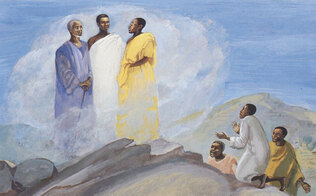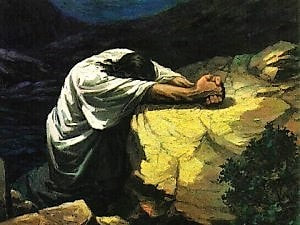
Sherlock Holmes and Dr. Watson went on a camping trip. After a good meal, they lay down for the night and went to sleep. Some hours later, Holmes awoke and nudged his faithful friend. Holmes said: “Watson, look up and tell me what you see”. Watson said: “I see a fantastic panorama of countless stars”.
Holmes: “And what does that tell you?” Watson pondered for a moment: “Astronomically, it tells me that there are millions of galaxies and potentially billions of planets. Astrologically, I observe that Saturn is in Leo. Horologically, I deduce that the time is approximately a quarter past three. Theologically, I can see that God is all powerful and that we are small and insignificant. Meteorologically, I suspect that we will have a beautiful day tomorrow.” “Why? – What does it tell you, Holmes?” Holmes was silent for a moment then spoke: “Someone has stolen our tent.”
As an inveterate city dweller, tried and true, outdoor living never ranked high on my bucket list. The closest we came to roughing it was our annual family camp week at Frost Valley YMCA, where we lived in rustic cabins with electricity and bathrooms, but with no TV or cell phone access, limited internet connection, We had to climb down to mess hall for meals, in mud or rain or sunshine. In 10 years we never did the ropes course or climbing wall, go fishing or the sunrise hike that required getting up at 4am. We did however manage to make campfires and s’mores with the kids.
It is not easy stepping outside our comfort zones. We like our routines. The familiar is soothing to us. It gives us a sense of control and reassurance to predict our daily schedule: up by 6am, shower, dressed and breakfast by 7:30, out the door, at work by 9, back home by 7, bed by 11pm. We all have some structure, with some give or take – meetings, interactions with family, answering emails, checking Facebook and texts and tweets, social events- our days develop a predictable rhythm.
Our readings today describe a disruption to that steady, regular pace of life. In our Hebrew lesson, God is grieved by the continuous evil in the world. So, God decides that the only way to ‘redeem’ the world is to begin again with a small family – Noah and his immediate relatives. After everyone and everything that God commanded were in the ark, the Lord “shut them in.” Then began the wilderness of the floods – forty days and forty nights of rains that destroyed all living things on earth not in the ark. God then makes a promise, in the sign of a rainbow to never again destroy the earth with water.
Imagine being a member of Noah’s family getting off that ark that first day. We are told the Ark landed on Mt. Ararat, considered by some scholars in modern day Turkey. Did Noah’s family have to establish a new home base in a foreign land? They were the sole survivors to a God-ordered holocaust. What did they see as they left the ark, a new world, wiped clean? How did they adjust without their extended family and friends? Think of the stress of building new homes, establishing farms, planting crops, starting over. With the stress of all Noah lived through, that he is the first person in the bible who gets drunk!
Although Noah and his family were saved by the terrible flood, their lives were upended. They could never go back to their old life. Much like us, trudging through this COVID19 pandemic, when we get to the other side, things just will not be the same. Noah and his family, despite God’s reassurance and blessings, went through a spiritual wilderness, with all the trials that implied. A place where the familiar was gone, the direction was unclear, nothing seemed right, and even relationship was God was reestablished with the covenant of the rainbow.
In Mark’s gospel lesson today, we see God has decided that the only way to truly ‘redeem’ the world is by entering into the world in the personal, intimate way – in the person of Jesus. But first, before Jesus’ public ministry begins, a time of preparation – a time in the wilderness for forty days and nights. Jesus’ wilderness time “immediately” followed his baptism, and the text says, literally the Spirit expelled Jesus (not led him politely) out into the bleak, lonely, and dry Judean wilderness for forty days of testing.
Mark is very succinct: he just tells us that Satan tempted Jesus. He leaves a lot to the imagination. What did Satan tempt Jesus with? How did Jesus respond? What we do know is that people for centuries have fled to the wilderness to seek answers and find new directions in life. It is not surprising that the people of Israel would wander for 40 years in the wilderness – not just in response to disobedience and unbelief – but to give time for a new generation to rise up, a new generation familiar with the teachings of the Covenant and leadership of Moses.
So, we can imagine Jesus, having lived the majority of his years in relative obscurity in Nazareth, as a local carpenter if we are to believe the legends. We simply don’t know. What we do know is that at age 30, more or less, he made a radical shift. Something stirred in his soul. Something was calling him forth. Something was fully awakening in him, telling Jesus, it is time. Jesus’ routine was about to be upended. The flood of baptism washed away, once and for all, all that was familiar and safe. The wilderness then, would strip away everything else that stood in the way.
While our other gospel writers tell us about some of the temptations Jesus faced in the wilderness, temptations about his identity as Song of God; temptations dealing with human hunger and of use of divine power for selfish purposes. I would like to think Jesus faced a very common temptation that we all face. The temptation to go back. To return to the old life and play it safe. The temptation to say no to God out of the fear of the unknown. To return to the carpenter’s shop and live an ordinary life.
We’ve all found ourselves out there. In the wilderness of money problems, of too much debt, of bills piling up and no end in sight. The wilderness of a lump, then an exam, then a test, then a biopsy, then a meeting with the oncologist and a diagnosis and a treatment plan and one drug after another and side effects and the waiting for results and the wishing for another life. There’s the wilderness of depression. The blinding wilderness of anger. The wilderness of a crumbling relationship. The wilderness of indecision. The wilderness of doubt. The wilderness of change. Could be you’re in the wilderness of busy. The wilderness of making time for everything and therefore having time for nothing. We all have one, don’t we?
God has called us into the wilderness not to punish us, but to bring us back to our true selves – that at the core of our hearts is that we are loved. We are loved, even if we fail and are tempted. We can love in hard times as well as the easy times. We can love in new and powerful ways. That is the grace and goodness of Lent. We are freed from the madness of self-centeredness. When that happens our whole world opens up to something new.
This Lent let us move out of our comfort zone. Let us be open to the unfamiliar. We might find what we prayed for radically transformed into something different .and bringing us a new future full of new promise and hope Amen.
2. For this sermon illustration I am grateful for the Rev. Amy Starr Redwine and the way she used it in her sermon, “God Revealed,” preached on January 17, 2010 at Firestone Park Presbyterian Church in Akron,


 RSS Feed
RSS Feed